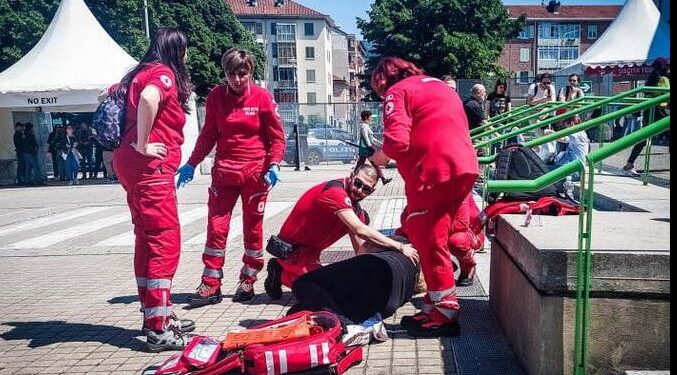Italy has been gripped by intense heat for several days, prompting the Ministry of Health to declare red alert zones in cities most at risk. An analysis by international experts reveals the devastating impact of the heatwave: between June 23 and July 2, an estimated 500 people died in Rome and Milan alone — mostly elderly individuals.
Study: Over 1,500 Heat-Related Deaths in 12 European Cities
Based on research by Imperial College London and the London School of Hygiene & Tropical Medicine, of the approximately 2,300 heat-related deaths across Europe, around 1,500 are directly attributed to heatwaves. This shocking figure highlights how climate change is already impacting cities, especially the most vulnerable regions.
The most severely affected cities include Milan, Barcelona, and Paris.
-
Milan recorded 317 deaths,
-
Barcelona 286,
-
Paris 235,
-
London 171,
-
Rome 164,
-
Madrid 108,
-
Athens 96.
Dozens of heat-related deaths were also reported in Budapest, Zagreb, Frankfurt, and Lisbon.
88% of Victims Were Over 65 — But Younger Adults Also at Risk
While 88% of those who died were over 65, the number of fatalities among adults aged 20–64 (183 deaths) is also alarming, showing that no age group is immune to the effects of extreme heat.
Madrid: A City Deeply Affected by Climate Change
The situation in Madrid is particularly severe — 90% of heat-related deaths there are directly linked to climate change. The data underscores how vulnerable some cities are to extreme weather events.
Scientists Warn: “Every Tenth of a Degree Matters”
Garifalós Konstantinidis from Imperial College London sounded the alarm:
“Climate change kills. Even tiny differences in temperature — 1.4°C, 1.5°C, or 1.6°C — are not negligible; they are thresholds that directly affect human lives.”
Ben Clark from the Center for Environmental Policy adds:
“Heatwaves don’t leave visible destruction like storms or wildfires, but their impact is just as devastating — only far less noticeable.”
A Grim Report Demanding Urgent Action
Despite the dramatic data, experts say it paints a clear picture: global warming is not a future threat — it is a deadly reality now. Immediate and decisive action is needed to protect public health and mitigate the increasingly aggressive effects of climate change.














